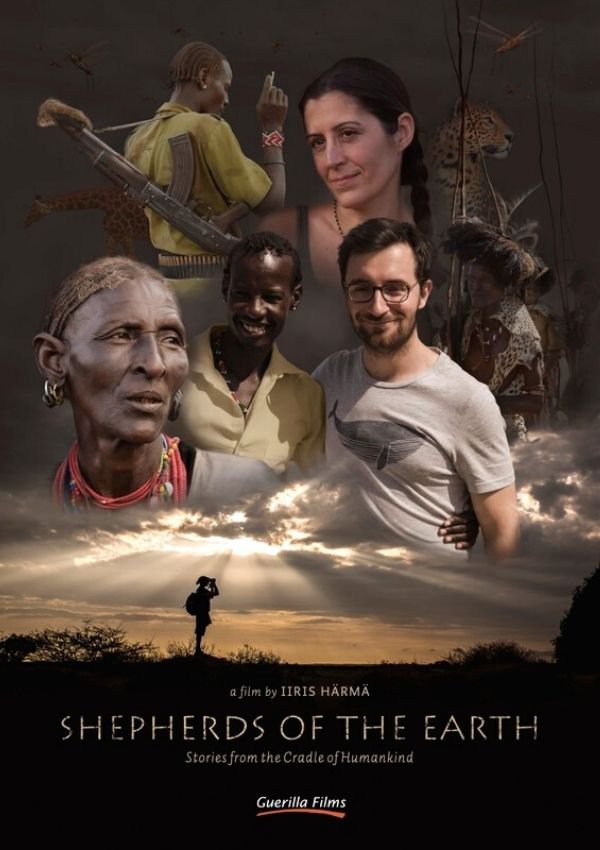The film "Shepherds of the Earth" nominated for Jussi Awards
The film Shepherds of the Earth: Stories from the Cradle of Humanity, starring Álvaro Fernández-Llamazares, ethnobiologist at ICTA-UAB, is one of the feature-length documentaries competing in the “Documentary Film” category of the Finnish national film awards, 2023 Jussi Awards.

This year’s gala will take place on Friday, March 24, 2023, and the winners will be chosen by the members of Filmiaura. Altogether 35 feature films and 15 documentary films were eligible. 14 films received nominations, with Girl Picture leading with eight nominations.
Directed by award-winning Finnish director Iiris Härmä, the film tells a fascinating story about the nomadic people’s struggle to survive, the preservation of traditions, and the loss of biodiversity in the Lake Turkana area of Northern Kenya, a unique place known as "The Cradle of Humankind", where fossils of some of our earliest human ancestors have been found.
The feature film follows Álvaro Fernández Llamazares and Mar Cabeza, from the University of Helsinki, on their scientific expeditions to study the relationship of the indigenous Daasanach pastoralist community with nature through ancient and traditional animal tales. Accompanied by a member of the tribe, Job Nasak, who guides them in the daily life of the village, they will be impressed by the traditional fables and animal stories of the community, and they will be asked to collect them into the first book written in the Daasanach language after the Bible.
In the process, however, the researchers will discover how the community and some of its own traditions also have a great impact on local nature. "The stories paint a picture of vivid nature and a rich wildlife, but as we explored the national park, we discovered a dry and barren landscape, with hardly any animals left", explains Fernández-Llamazares, who had to face the dilemma of "who are we to say what is right or wrong in their culture".
The film tells a fascinating story about the Cradle of Humankind, the struggle of nomadic peoples to survive, poaching, the loss of sacred traditions, the role of nature reserve rangers, tribal wars over scarce resources and prehistoric fossils. The film, which has been screened in a dozen countries around the world and won numerous awards at film festivals, shows the collision of two worlds, the biologists’, and the community members', and reveals the value of wildlife and nature for both.
The film, which has also won an award at the Africa Human Rights Film Festival in South Africa, addresses the intertwined issues of climate change and biodiversity loss through the traditional stories and songs of the Daasanach community. It shows us the greatest threats to the Earth in such an iconic place as the "Cradle of Humankind" - climate change and animal extinction - and challenges us to discover our contribution to them. It reveals these nomadic people, whose contribution to climate change is minimal, but who are the most exposed to its devastating effects and who have the least resources to withstand and adapt to it.
The film has been viewed by more than 12,000 people and has received awards including best documentary at the Atlantic International Film Festival, the Pärnu Film Festival and the Kotka International Film Festival.